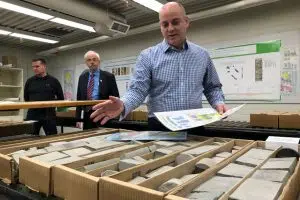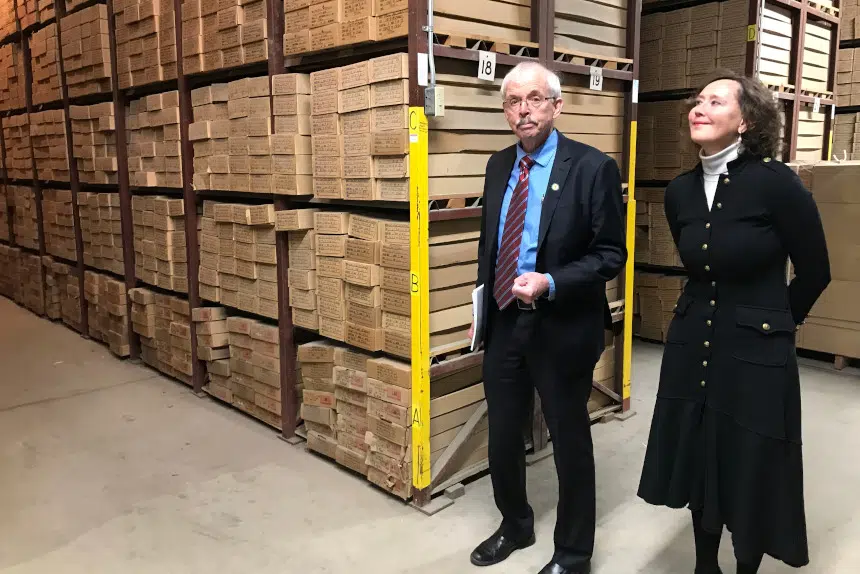With boxes upon boxes stacked on top of each other, the warehouse for core samples at the Saskatchewan Subsurface Geological Lab stretches back nearly the length of a full city block.
For those wanting to get their hands on oil and drilling rights in Saskatchewan, that’s where they need to go first.
“This is ground zero, really, for geology in the province. It’s where industry (and) sector partners come here and check out the literal lay of the land in the province for their decisions that they make for exploration here in Saskatchewan, and for investment and where they’re going to focus,” Bronwyn Eyre, Saskatchewan’s minister of energy and resources, said Monday.
When core samples are pulled from anywhere in the province, they end up housed in the lab in Regina on Dewdney Avenue. Consequently, oil and gas companies will make frequent pilgrimages there to look at samples to decide where to go next.
The lab has teams working on a number of samples there, and they come up with models which help inform new exploration activity, according to Gary Delaney, the chief geologist for Saskatchewan.

Dan Kohlruss, petroleum research geologist, showing off cores from the Bakken region at the Saskatchewan Subsurface Geological Lab in Regina on Dec. 2, 2019. (Lisa Schick/980 CJME)
“By understanding the geological architecture, you really understand where those resources are and how to go about exploiting them,” said Delaney.
And it’s not just new cores that are being worked on. Delaney said a good example of this are cores from the Bakken region.
“Some of the seminal work on that was actually done a few decades ago by a fellow by the name of Dr. Jim Christopher, and that’s really supported the development of that play,” said Delaney.
This week, the 50th anniversary Saskatchewan Geological Open House will take place in Saskatoon, where research from the lab will be presented to industry and academia.
A tax break
The provincial government recently announced it will be reinstating PST exemptions for exploratory and down-hole drilling.
Eyre said it’s good news for the mining sector and shows the province listened. When asked why PST exemptions were given to the mining industry instead of the general public who’ve dealt with a higher and expanded PST, Eyre talked about the positives of the change for the mining business.
“That was having an impact on investment. They told us that loud and clear, that they were simply stopping at a certain point when it came to exploration. Exploration is the R&D of mining and if that’s being affected, then that affects everything. There’s a trickle-down effect, of course, on investment and royalties and everything else,” said Eyre.
“So, we felt that it was better to look at that again, to listen to the sector, and make sure that they felt as free as they could to explore here in the province of Saskatchewan and to invest here.”











